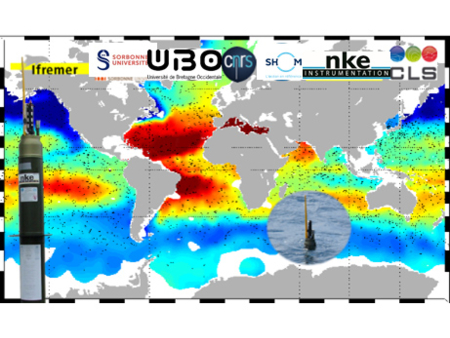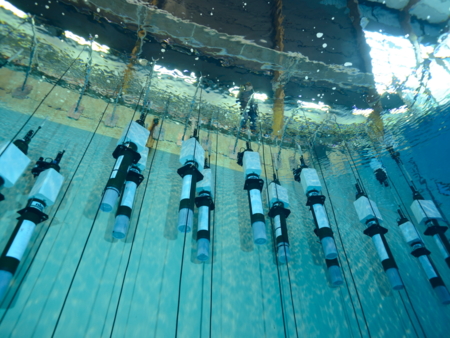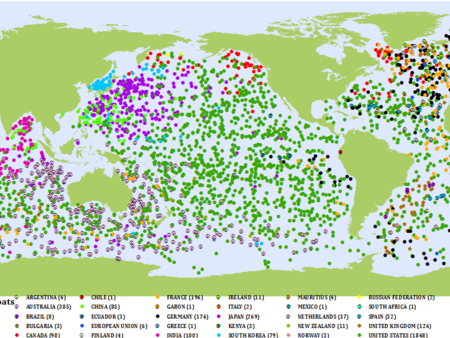End of project
The Equipex NAOS project strated in 2011 and ended on 31st December 2020 after a one-year extension.
The final results of the project are synthesized in two scientific publications published in the journal Frontiers in Marine Science:
- André X., Le Traon P-Y., Le Reste S., Dutreuil V., Leymarie E., Malardé D., Marec C., Sagot J., Amice M., Babin M., Claustre H., David A., D'Ortenzio F., Kolodziejczyk N., Lagunas J., Le Menn M., Moreau B., Nogré D., Penkerc'h C., Poteau A., Renaut C., Schaeffer C., Taillandier V., Thierry V. (2020). Preparing the new phase of Argo: technological developments on profiling floats in the NAOS project. Frontiers in Marine Science, doi.org/10.3389/fmars.2020.577446.
- Le Traon P.Y., D'Ortenzio F., Babin M., Leymarie E., Marec C., Pouliquen S., Thierry V., Cabanes C., Claustre H., Desbruyères D., Lacour L., Lagunas J-L, Maze G., Mercier H., Penkerch C., Poffa N., Poteau A., Prieur L., Racapé V., Randelhoff A., Rehm E., Schmechtig C., Taillandier V., Wagener T. and Xing X.. (2020). Preparing the new phase of Argo: scientific achievements of the NAOS project. Frontiers in Marine Science doi: 10.3389/fmars.2020.577408
Follow up activities are now carried out as part of Argo-2030.
The Argo-2030 project is an Equipex funded by the French Research Agency (ANR) over the period 2021-2028. It is co-supported by Ifremer and Sorbonne University (SU). The project is a partnership between Ifremer, SU, CNRS / INSU and UBO.
Argo-2030 proposes to acquire 15 BGC-Argo floats to consolidate France's contribution to BGC-Argo and enable the country to fulfil its international commitment. Argo-2030 also proposes to prepare Argo’s next phase by testing and validating a second generation of BGC and Deep-Argo floats that will dramatically increase the network’s scientific potential. For the latter objective, Argo-2030 aims to acquire 14 BGC-ECO-Argo floats and 22 Deep-6000 floats. The BGC-ECO-Argo floats are BGC-Argo floats equipped with ecological sensors to observe marine ecosystems. They will provide observations ranging from physical dynamics to high trophic levels (i.e. zooplankton and small fishes), thereby extending Argo's scope to marine ecological research. The Deep-6000 floats will reinforce the Argo array by sampling abyssal layers, and by providing deep biogeochemistry observations thanks to oxygen sensors with which they will be systematically equipped. These innovative Argo-2030 floats will revolutionize ocean sciences by palliating, and eventually resolving, the current chronic undersampling of marine ecosystems and abyssal layers. Argo-2030 will be completely integrated into Argo-France. It will maintain France as the European leader and key international actor of the Argo program.







